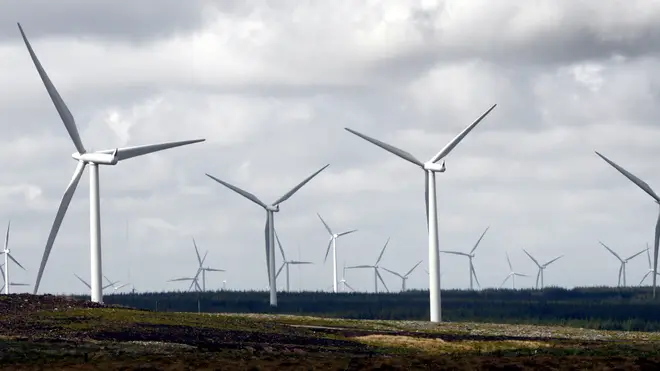
Henry Riley 4am - 7am
23 May 2022, 00:04

The Resolution Foundation said the drive to net zero would channel investment to parts of the country that have been left behind.
The Government’s plans to invest in a net-zero future could help “level up” the country and create opportunities in the north of England, a new report has claimed.
The Resolution Foundation think tank said that the drive to net zero would channel investment to parts of the country that have seen underinvestment in recent years.
The UK has committed to becoming net zero by 2050, meaning that it must slash emissions as much as possible and mitigate any emissions that cannot be cut.
This could help avoid catastrophic climate change.
The transition is expected to cost the Government billions of pounds each year as it invests in clean technology such as carbon capture and wind turbines.
But green investment could help tackle inequality by generating growth in areas badly in need of more economic opportunities, the report from the Resolution Foundation and the London School of Economics said.
Low-productivity areas outside London and the South East have the greatest potential for growth, in line with the Government’s “levelling up” agenda.
But the think-tank and university warned that net-zero investment is not a “silver bullet” for the UK’s lack of an economic strategy.
Researchers say the Government’s ambitious climate plans will not alone solve sluggish growth and high inequality.
Anna Valero, a senior policy fellow at the LSE, said: “The scale of additional investment needed to make our net-zero ambition a reality has led some to focus excessively on costs, while others to see it as the silver bullet that solves all our economic woes.
“In reality, smart, net-zero investment should be embedded in a wider economic strategy, especially as it could have the additional benefit of bolstering the Government’s levelling up agenda.
Ms Valero also urged the Government to prioritise green technology in low-productivity areas in the UK.
She added: “Britain already has some key clean tech strengths from tidal and offshore wind, to carbon capture and green finance. Furthermore, much of the related technological potential is located in traditionally low-productivity areas like the East Midlands and North East.
“The Government should prioritise leveraging these strengths as it aligns its ambitious net zero agenda with a new economic strategy for the 2020s.”
More research is needed to determine what the net-zero strategy will mean for job creation, the report concluded.
A Government spokesperson said: “Net zero and the British Energy Security Strategies together could support around 480,000 jobs in 2030, driving our levelling up agenda.
“We are already seeing results from clear Government policy, with investment throughout the country and jobs created from Teesside to Hull to Ellesmere Port.”